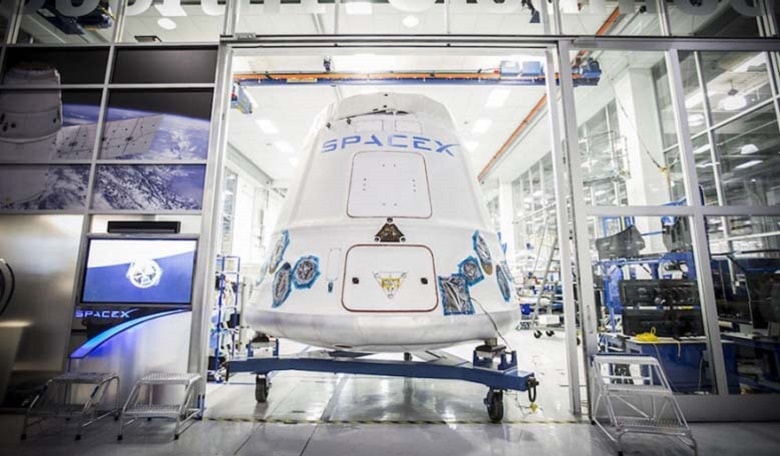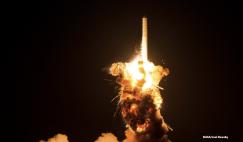SpaceX' new contract with NASA gives it five additional space station cargo-supply missions. The contract, signed in late December 2015, has an estimated value of around $700 million.
Although the contract was signed around December 25, 2015, it has only now been confirmed by both parties. The new contract brings the number of SpaceX missions up to 20 (including those assigned to the company under the Commercial Resupply Services (CRS) contract, signed in 2008).
In contrast, the other company performing CRS missions, Orbital ATK of Dulles, Virginia, has been assigned just 10 flights.
“We order resupply flights from our commercial providers via the contract modification process based on the mission needs to resupply the international space station,” said NASA spokeswoman Cheryl M. Warner on February 23rd.
Both SpaceX and Orbital ATM signed separate CRS contracts in 2008. The contracts have not been analysed by outsiders as both NASA and the suppliers have invoked commercial sensitivity in declining to disclose details.
The CRS terms and conditions were originally designed as a service arrangement where NASA pays for an agreed-to amount of cargo delivered to the station, but have since changed to account for the number of launchers involved, and not just the kilograms delivered, NASA spokeswoman Stephanie L. Schierholz said on February 23.
For example, the Orbital contract included an 11th launch, which was subsequently spread out over other missions, she said.
SpaceX’s original CRS contract was valued at $1.6 billion and was to cover the delivery of 20,000 kilograms of supplies to the space station. Orbital’s contract was valued at $1.9 billion and was intended to cover eight launches of Orbital’s Antares rocket, which unlike Falcon 9 had not yet flown when the CRS work was booked. The Orbital Cygnus canister is burned up in the atmosphere after each mission and is not able to return payload to Earth.
Schierholz said CRS is being managed as an indefinite-delivery, indefinite-quantity contract with Orbital and SpaceX under which the companies are promised a maximum of $3.1 billion each. But there is no guarantee that this figure will be reached.
Under this arrangement, NASA is free to pursue work orders with one or the other contractor without running competitive bids for each mission.
In January, NASA contracted with three companies – Orbital and SpaceX, plus Sierra Nevada Corp. – for a CRS-2 contract covering cargo missions between 2019 and 2024.
Each company has been promised a minimum of six missions under the contract, which will cost NASA up to $14 billion between 2016 and 2024. The exact budget will depend on the mix of vehicles needed to meet the station’s requirements at the time.
NASA said in its statement on CRS-2 that SpaceX and Orbital combined had delivered around 16,000 kilograms of cargo to the orbital complex.
It is unclear whether the December award to SpaceX indicates that Orbital’s Cygnus is falling out of favor with the agency as it assesses space station requirements in the coming years.
“NASA assigns the CRS missions using ISS requirements as the primary determinant for the award,” Orbital spokeswoman Vicki Cox said on February 24. “We are ready to support additional cargo resupply flights based on NASA’s requirements and specific needs for future missions.”











